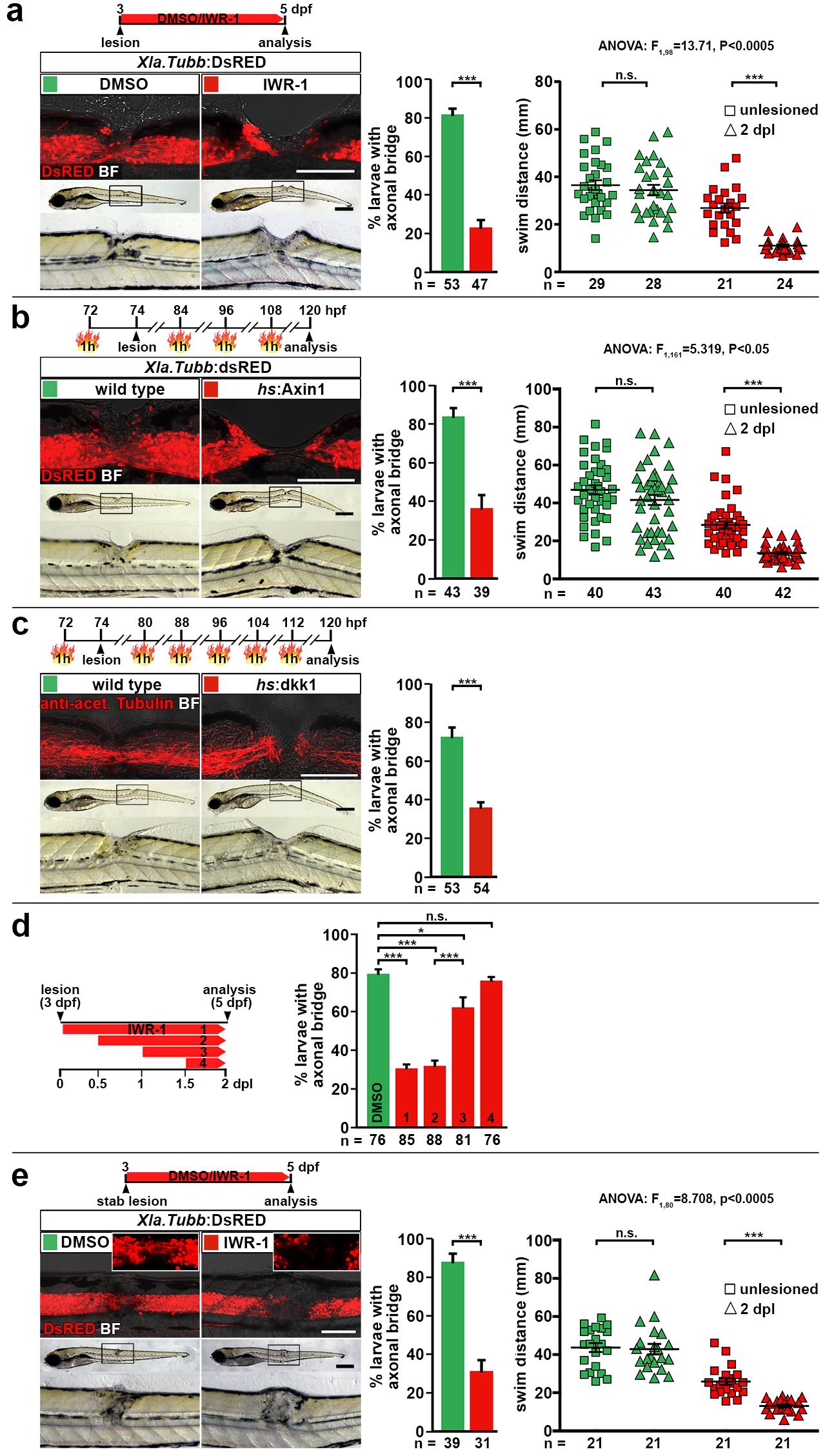Fig. S5
Different lesion and manipulation paradigms support that Wnt/β-catenin signaling is required for axon regeneration and functional recovery after spinal cord lesion.
(a) Pharmacological interference (IWR-1) with Wnt/β-catenin signaling inhibits axon regeneration (Fischer’s exact test: ***P<0.001) and functional recovery (two-way ANOVA: F1,98=13.71, P<0.0005; t-test: ***P<0.001) in lesioned animals.
(b) Heat shock-induced ubiquitous overexpression of the Wnt/β-catenin pathway antagonist axin1 inhibits axon regeneration (Fischer’s exact test: ***P<0.001) and functional recovery (two-way ANOVA: F1,161=5.319, P<0.05; t-test: ***P<0.001) in lesioned hs:Axin1 transgenic animals.
(c) Heat shock-induced ubiquitous overexpression of the Wnt/β-catenin pathway antagonist dkk1 inhibits axon regeneration (Fischer’s exact test: ***P<0.001) in lesioned hs:dkk1 transgenic animals.
(d) Pharmacological interference (IWR-1) with Wnt/β-catenin signaling starting at different time points post-lesion indicates that pathway activity is required between 0.5 dpl (12 hpl) and 1 dpl for axon regeneration (Fischer’s exact test: *P<0.05, ***P<0.001, n.s. indicates not significant).
(e) Pharmacological (IWR-1) interference with Wnt/β-catenin signaling inhibits axon regeneration (Fischer’s exact test: ***P<0.001) and functional recovery (two-way ANOVA: F1,80=8.708, P<0.0005) in stab-lesioned animals.
(a-e) Views are lateral (dorsal is up, rostral is left. BF: brightfield. Scale bars: whole mounts, 200 μm and 100 μm. Error bars indicate s.e.m.

